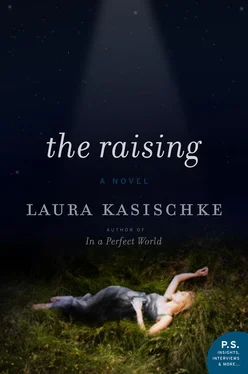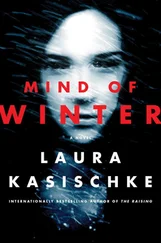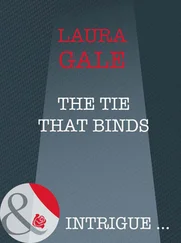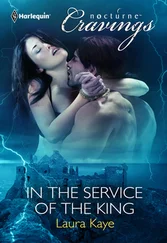And there were other things he remembered.
Back in his dorm room, in Godwin Hall, just those few weeks before the accident.
Told you, didn’t I?
Nicole had kissed him afterward, and stood up, and, as she was buttoning her shirt, had said, “Told you, didn’t I? I knew you wanted to fuck me, and that you would.” Then, she put on her clothes, closed the door behind her—somehow managing to leave her panties at the foot of the bed for Craig to find (although Craig didn’t recognize them, and instead teased Perry mercilessly, pitifully, about his “mystery slut”). Why had she done that? It could not have been a mistake. He’d known Nicole most of his life. She wasn’t ever sloppy. Even in kindergarten she’d been the first one to throw her empty milk carton away, or fold up her nap mat.
At first, Perry had thought she might have been sending a message for Craig—but, later, he wondered if it had been something else, a way to discredit Perry, cast suspicion on him. Surely she could tell that he and Craig were starting to become friends.
He could see the light on the porch of the Omega Theta Tau house, but Perry couldn’t tell, from where he stood on the sidewalk looking up at it, whether anyone was on the porch.
It was a flat town, a flat state , so it was that much stranger, eerier, that the sorority house was perched on a hill above the rest of the block.
Behind it, the memorial orchard sloped down to the wall between the sorority property and the smaller yard of the frat house next door. There were no leaves at all left on those cherry trees as far as Perry could tell—two skeletal rows of shiny, wet black branches and moonlight. From inside the house, there seemed to be only one light: a dim flickering in one of the upstairs windows. Perry couldn’t tell if it was a candle doing the flickering or some shadowy figure pacing around by the window. There seemed to be lacy curtains, and they seemed to be closed. He supposed it wasn’t so odd that all the lights were out at this time of night—or morning—in the middle of the week before exams. Omega Theta Tau was supposed to be one of the studious sororities.
Perry stood staring up at the house until he was sure there was no one on the porch, and then he stepped off the sidewalk and onto the grass. He wanted to get closer, but he thought it was a bad idea to go straight up the front walk, which was bathed in porch light. He didn’t know why. He had no idea yet what he thought. Did he think Nicole was in there ? And, if so, how? And if she wasn’t, what was he afraid of? And if she was, what then?
He stayed in the shadows, and made his way up the side of the lawn. The ground was soggy, slippery, carpeted with fallen leaves. He walked slowly, with no idea what he planned to do when he reached the porch. (Knock on the back door and ask to see Nicole? Peer in the windows to try to catch a glimpse of her?)
He stopped. Looked behind him. Looked in front of him. He looked toward the porch, and just before he saw what he thought was a man in some kind of dark suit or uniform, the light switched off and Perry was left standing on the lawn in the dark, and then he heard what sounded to him (so out of place here that it took him more than a few seconds to recall it from duck hunting with his dad at Lake Durand, or deer hunting in the national forest with his grandfather, from the hundred or so Boy Scout rifle competitions he’d attended at the Bad Axe Rod and Gun Club) like the slide of a shotgun being racked, and he crouched down and, holding his breath, made his way back across the lawn, away from the house, as quickly and as quietly as humanly possible.
It was blocks later that he realized that he’d run all the way back to Professor Polson’s apartment, the outside entrance of which had been propped open so that he didn’t have to buzz her, and that he’d run up to the stairs to her door, and he was knocking on it.
She opened the door as if she’d been expecting him.
Clearly, he hadn’t woken her. She was still in the same top and jeans she’d been wearing during Lucas’s interview. Her eyes looked watery, as if she had been either crying or coughing. Her hair was a little more mussed. (Perhaps she’d been lying down?) But when she saw that Perry was nearly doubled over, out of breath, standing in her doorway, Professor Polson pulled him into the apartment without asking any questions, and led him to the couch.
“I’ll get you some water,” she said. “Try square breathing. You know what square breathing is?”
He knew what square breathing was only because she’d told them about it in class, in preparation for their trip to the morgue—had told them that if they began to feel faint during the visit, or to feel as if they might be sick, or hyperventilate, they should close their eyes and do square breathing.
(“Breathe in through your nose to the count of four. Hold the breath to the count of four. Exhale to the count of four.” She’d had the whole class practice. “I used to lose at least three students to the linoleum every field trip until I taught square breathing.”)
As Perry sat panting on her couch, and Professor Polson went into the kitchen, he tried it:
One. Two.
The apartment looked different in the dark.
Three. Four.
She came back to the living room with a sweater draped over her shoulders and a glass of water for him, three ice cubes bobbing in it. She turned on the light beside the couch and handed him the glass, and then sat down on the chair across from him, perching on the edge of it, leaning forward with her elbows on her knees, and asked in a soft, concerned voice, “What is it, Perry? Can you tell me?”
The square breathing, or something , had worked. He was calm now. He didn’t even feel winded. He told her what had happened. The darkness. The candle. The man he thought he saw in the shadows, and the sound of a shotgun being racked up, and how he’d run, not realizing he was here again until he was.
Professor Polson had seemed to think for a long time about what she was going to say before she spoke, and then said, “Perry, I think maybe we’ve already taken this too far. I think I’ve encouraged you in some—” she pulled the sweater off her shoulders and onto her lap, and then gathered it in her hands, brought it to her face, seemed to breathe it in for a minute before she continued, “unproductive thinking. When the imagination—and I’m not talking here about your imagination per se. I’m talking the collective imagination, the occult imagination—when it’s stimulated, many things that aren’t real can come to seem to be real. Perfectly sane people, people who—”
“No,” Perry said.
Professor Polson nodded as if she’d expected him to object, but she went on:
“Let me tell you something,” she said, and she told him, then, a story about her childhood. Her mother. A kind of transformation in a pantry. A white coffin, and her own realization, staring into it, of what the unconscious was capable of. The imagery that informed this life, this culture.
“You can pretend you aren’t superstitious,” Professor Polson said. “You can imagine that you are not religious. You can be certain that you don’t believe in life after death, if that’s what you want. But, Perry, it doesn’t stop the fact that we are in a very strange position here. We humans. With such a clear knowledge of how it will end, and no idea what will happen afterward—just some symbols, some music, some stories to show us the way.
“Of course you believe your friend is alive. That she lurks around every corner. That her death could be something as alive as her sexuality was, as your own. You’re nineteen years old. Who dies , Perry? Who believes in death at your age? People with a lot more life experience than you have believed stranger things. Have seen stranger things. Folklore is full of—”
Читать дальше












